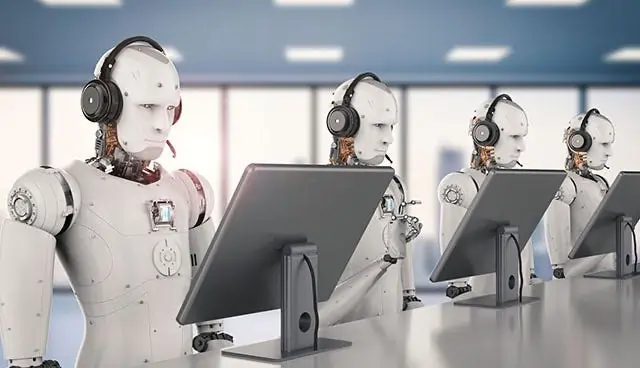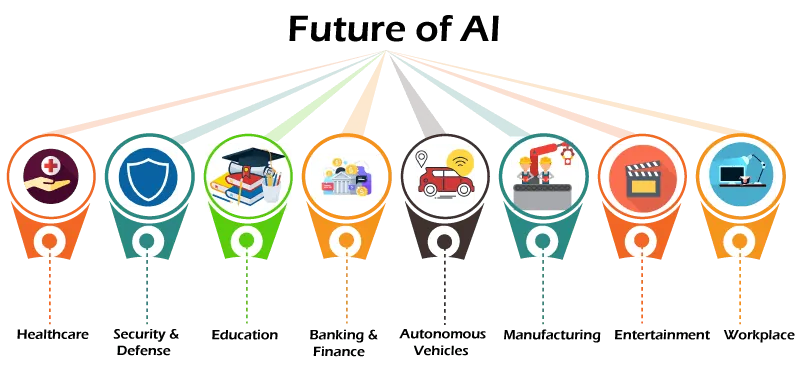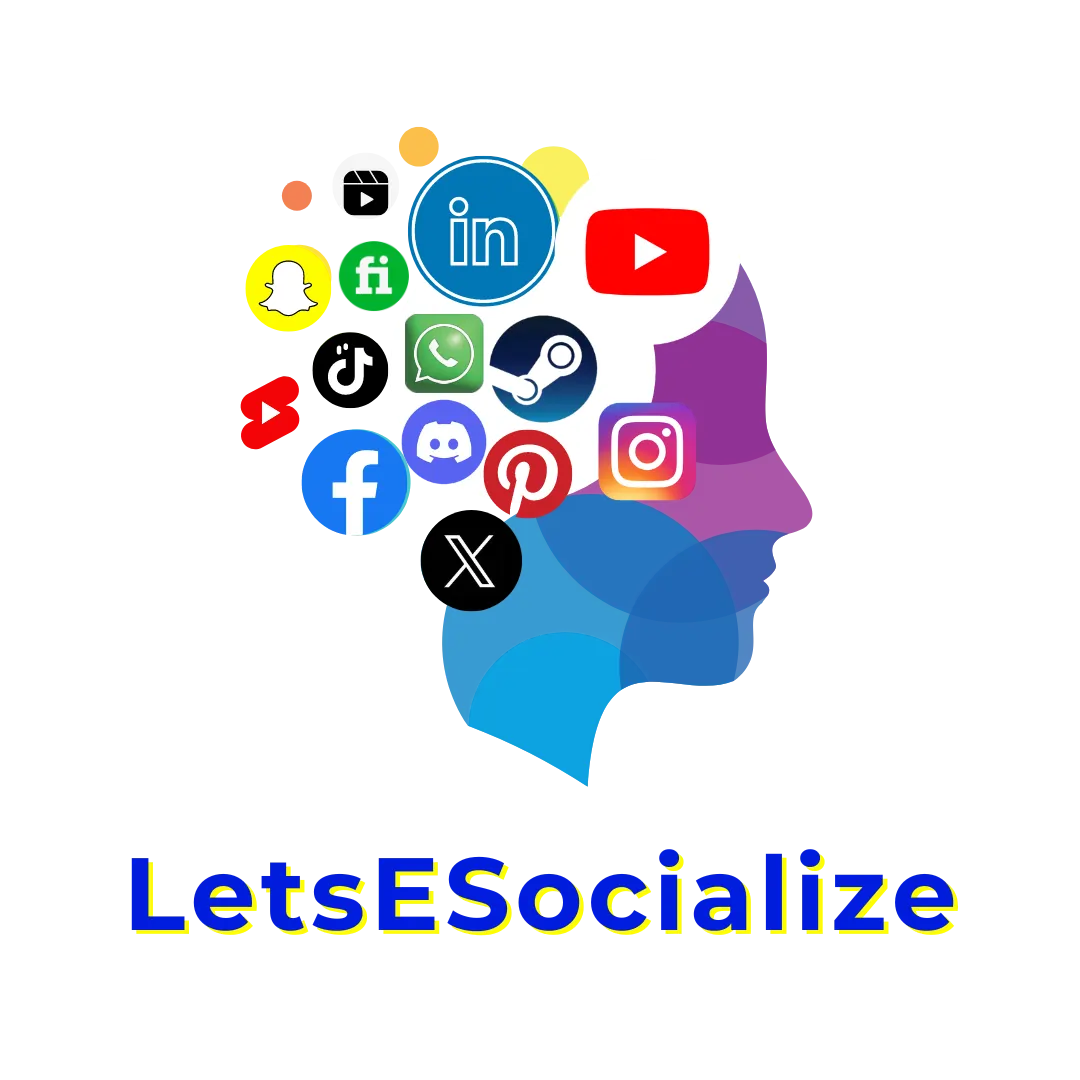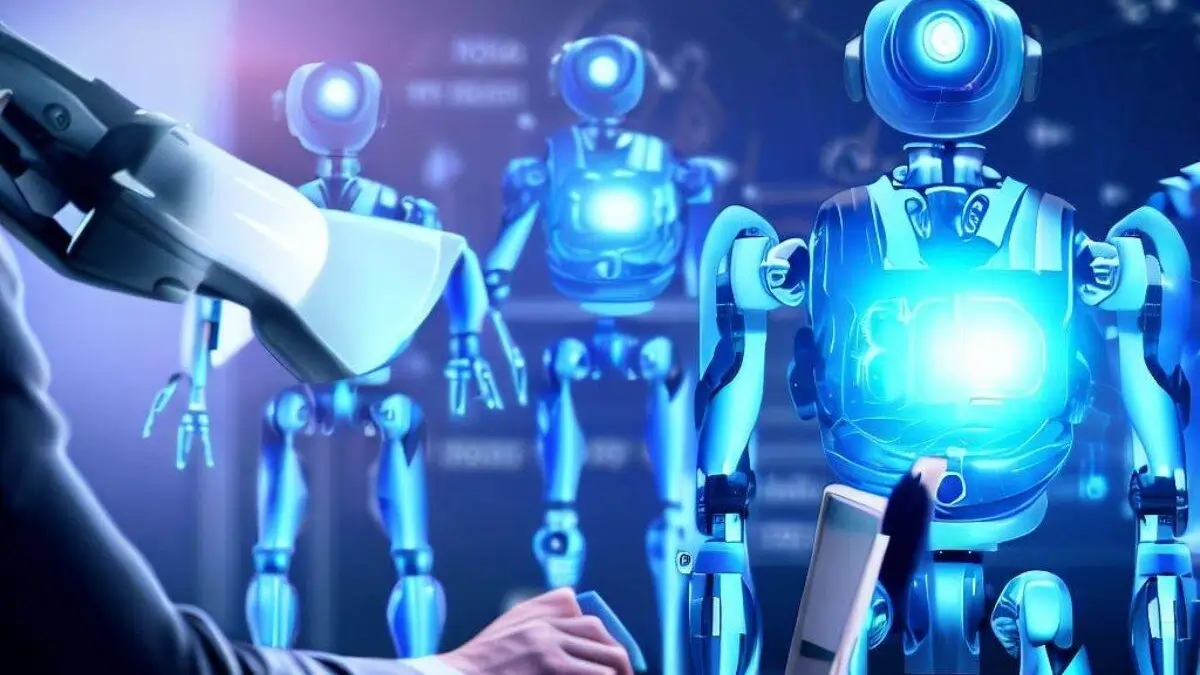In the era of rapid technological advancement, the integration of artificial intelligence (AI) into various industries is inevitable. While AI promises efficiency and innovation, it also raises concerns about job displacement. In this guide, we’ll explore 10 jobs likely to be replaced by AI and 10 that are poised to remain relevant.
Table of Contents
1. Jobs Replaced by AI
Artificial intelligence (AI) is rapidly transforming the world around us, and one of the most significant areas of change is the workplace. AI is automating many tasks that were once done by humans, leading to concerns about job displacement. While AI is creating new jobs in some sectors, it is also displacing workers in others.

Here are some of the jobs that are most at risk of being replaced by AI:
- Data entry clerks: AI can now enter data much faster and more accurately than humans, making data entry clerks one of the most vulnerable job categories.
- Assembly line workers: Many manufacturing jobs are being automated, as robots can perform repetitive tasks more efficiently and consistently than humans.
- Telemarketers: AI-powered chatbots can now handle many of the tasks that were once done by telemarketers, such as making sales calls and qualifying leads.
- Cashiers: Self-checkout kiosks are becoming increasingly common, and they could eventually replace cashiers altogether in some retail stores.
- Truck drivers: Self-driving trucks are still in the early stages of development, but they have the potential to displace a significant number of truck drivers in the future.
- Tax preparers: AI-powered software can now prepare tax returns for many people, and this could lead to a decline in the demand for tax preparers.
- Loan officers: AI can now assess loan applications and make lending decisions, which could lead to a decrease in the number of loan officers needed by banks.
- Paralegals: AI can now perform many of the tasks that were once done by paralegals, such as legal research and document review.
It is important to note that not all jobs are equally at risk of being replaced by AI. Jobs that require creativity, critical thinking, and social skills are less likely to be automated. Additionally, AI is often used to augment human workers, rather than replace them entirely. For example, AI can be used to help doctors diagnose diseases, but it is not likely to replace doctors altogether.
The impact of AI on the job market is complex and there is no one-size-fits-all answer. However, it is clear that AI is having a significant impact on the workplace, and it is important to be aware of the potential challenges and opportunities that it presents.
Here are some additional factors to consider:
- The pace of technological change is accelerating, so it is difficult to predict which jobs will be most affected by AI in the future.
- The impact of AI will vary depending on the specific industry and occupation.
- Governments and businesses need to develop policies and strategies to help workers who are displaced by AI.
- Individuals need to be prepared to adapt and learn new skills throughout their careers.
Overall, AI is a powerful tool that has the potential to improve our lives in many ways. However, it is important to be aware of the potential challenges that AI presents and to take steps to mitigate them.
Also Read – Jeff Bezos Reclaims Title as World’s Richest Person, Elon Musk Drops to Second
2. Jobs That Won’t Be Replaced by AI
While AI is undoubtedly transforming various sectors and automating tasks, several job categories are likely to remain in the hands of human workers due to the inherent human qualities and capabilities they require. Here are some examples of jobs that AI is unlikely to replace in the foreseeable future:

1. Jobs Requiring Human Interaction and Empathy:
- Therapists and Counselors: The ability to build rapport, provide emotional support, and navigate complex human relationships are crucial aspects of these professions, making them difficult for AI to replicate.
- Social Workers and Community Outreach Roles: These roles often involve understanding individual and community needs, providing emotional support, and navigating social dynamics, all of which are challenging for AI to grasp.
- Teachers and Educators: While AI might assist with personalized learning or administrative tasks, effectively educating students requires human qualities like empathy, critical thinking, and the ability to adapt to individual needs and learning styles.
2. Jobs Demanding High-Level Creativity and Innovation:
- Musicians and Artists: While AI can generate creative outputs, true artistic expression, originality, and the ability to evoke emotions remain unique human strengths.
- Scientists and Researchers: Conceptualizing new research ideas, conducting complex experiments, and interpreting results often require human creativity, critical thinking, and problem-solving skills that are difficult for AI to replicate at present.
- Entrepreneurs and Business Leaders: These roles involve taking risks, making strategic decisions, and adapting to changing circumstances, all of which demand human judgment, intuition, and the ability to inspire and lead others.
3. Jobs Requiring Manual Dexterity and Physical Interaction:
- Surgeons and Healthcare Professionals: Performing delicate surgeries, administering medical care, and providing hands-on patient interaction are tasks that require human precision, dexterity, and complex decision-making in real time.
- Construction Workers and Plumbers: Building, repairing, and maintaining physical structures often involve tasks requiring physical manipulation, spatial reasoning, and adaptation to unforeseen circumstances, which are not easily replicated by AI.
- Athletes and Performers: While AI might analyze data and suggest improvements, the physical capabilities, adaptability, and strategic thinking required in various sports and performance domains remain irreplaceable human strengths.
4. Jobs Emphasizing Ethical Considerations and Moral Reasoning:
- Judges and Lawyers: Navigating legal complexities, upholding ethical principles, and making subjective judgments based on the nuances of human situations are unlikely to be fully automated by AI in the foreseeable future.
- Journalists and Writers: While AI might assist with research and data analysis, critical thinking, ethical considerations, and the ability to craft compelling narratives remain core human strengths in these professions.
- Religious Leaders and Philosophers: Addressing existential questions, providing spiritual guidance, and navigating complex ethical dilemmas are inherently human endeavors that require empathy, understanding, and the ability to connect with individuals on a deeper level.
It’s crucial to remember that this list is not exhaustive, and the future development of AI might redefine the landscape of various professions. However, the jobs mentioned above highlight the inherent human qualities, such as creativity, empathy, critical thinking, ethical judgment, and physical dexterity, that are likely to remain crucial in the evolving job market alongside the increasing presence of AI.
Impact of AI on Employment:
The impact of Artificial Intelligence (AI) on employment is a complex and multifaceted issue with both potential benefits and challenges. Here’s a breakdown of its impact on various aspects of the workforce:

Potential Benefits:
- Increased Productivity: AI can automate routine and repetitive tasks, freeing up human workers to focus on higher-level cognitive tasks requiring creativity, problem-solving, and strategic thinking. This can lead to increased efficiency and productivity across various sectors.
- Creation of New Jobs: AI is driving innovation and creating new job opportunities in fields like AI development, data science, cybersecurity, and robotics. These jobs require specialized skills and expertise in working with and managing AI systems.
- Improved Working Conditions: AI can take over dangerous or laborious tasks, potentially improving working conditions and reducing workplace injuries and fatalities.
Potential Challenges:
- Job Displacement: Automation through AI is likely to displace some jobs, particularly those involving routine tasks and data processing. This could lead to unemployment and economic hardship for individuals whose skills become obsolete.
- Skill Gap: The jobs created by AI often require new skill sets that the current workforce might not possess. This highlights the need for continuous skill development and education programs to bridge the gap between existing skills and the demands of the evolving job market.
- Income Inequality: The benefits of AI-driven advancements might not be equally distributed, potentially exacerbating income inequality. Jobs requiring skills complementary to AI might command higher wages, while those displaced by automation could face challenges finding new opportunities.
Overall, the impact of AI on employment is likely to be a mixed bag. While it has the potential to create new opportunities and improve productivity, it also presents challenges related to job displacement and the need for reskilling the workforce.
Here are some additional points to consider:
- The pace and extent of job displacement due to AI are still uncertain and depend on various factors like the speed of technological development, government policies, and industry adoption.
- Mitigating the negative impacts of AI requires proactive measures. This includes investing in education and training programs to equip individuals with the skills needed for the AI-powered future, along with social safety nets to support those who are displaced from their jobs.
- Fostering collaboration between humans and AI, rather than viewing them as replacements, is crucial. AI can be a powerful tool to augment human capabilities and improve outcomes in various fields.
As AI continues to evolve, navigating its impact on employment will require a comprehensive and multifaceted approach that considers both the potential benefits and challenges. By focusing on skilling, reskilling, and adaptation, we can strive towards a future where AI complements and empowers the human workforce, leading to shared prosperity and progress.
Also Read – Facebook and Instagram Back Online After Hour-Long Outage, Some YouTube Users Also Suffer Sign-In Issues
Future Career Prospects:
Predicting the future of the job market with absolute certainty is impossible, especially in an era of rapid technological advancement like ours. However, by analyzing current trends and considering the evolving landscape, we can explore some promising career prospects for the future:

1. Fields driven by AI and Automation:
- AI Specialists and Developers: As AI integration continues across various industries, the demand for professionals who can design, develop, and implement AI systems will likely surge.
- Data Scientists and Analysts: The ability to collect, analyze, and interpret massive datasets will remain crucial for various sectors, making data science expertise valuable.
- Robotics Engineers and Technicians: With increasing automation, professionals skilled in designing, building, and maintaining robots will be in demand across diverse fields.
2. Jobs requiring human-centric skills:
- Healthcare Professionals: The aging population and growing demand for personalized medicine will likely create a need for more doctors, nurses, therapists, and other healthcare professionals.
- Educators and Tutors: As the focus on personalized learning and critical thinking skills increases, educators who can effectively engage and guide students will remain valuable.
- Social Workers and Counselors: Addressing mental health concerns, navigating social complexities, and providing emotional support are inherently human tasks that will likely remain crucial.
3. Roles focused on creativity and innovation:
- Content Creators and Digital Marketers: The ability to generate engaging content, understand online communities, and navigate digital marketing strategies will be essential in a world increasingly reliant on online communication.
- Entrepreneurs and Business Leaders: Individuals with the vision, innovation, and leadership skills to navigate a dynamic business landscape will be crucial for driving economic growth and creating new opportunities.
- Artists, Designers, and Musicians: While AI might assist with creative processes, human creativity, originality, and the ability to evoke emotions will continue to be valued in various artistic domains.
4. Jobs requiring technical expertise and adaptation:
- Cybersecurity Specialists: As reliance on technology grows, so do cybersecurity threats. Professionals skilled in protecting systems and data from cyberattacks will be in high demand.
- Renewable Energy Engineers and Technicians: The transition towards sustainable energy sources will require professionals skilled in designing, installing, and maintaining renewable energy systems.
- Climate Change and Sustainability Specialists: Addressing the challenges of climate change will require individuals with expertise in various fields, from environmental science and engineering to policy and social change.
Beyond specific job titles, here are some key skills that will likely be valuable in the future:
- Critical thinking and problem-solving: The ability to analyze complex situations, identify problems, and develop innovative solutions will be essential in various fields.
- Communication and collaboration: Effective communication and the ability to collaborate effectively with diverse teams will remain crucial for success.
- Adaptability and lifelong learning: The pace of change will likely continue to accelerate, and the ability to learn new skills and adapt to evolving circumstances will be essential.
Remember, this is not an exhaustive list and individual career paths will depend on various factors like personal interests, educational qualifications, and geographic location. However, by understanding the evolving landscape and focusing on developing future-proof skills, individuals can position themselves for success in the years to come.
Conclusion:
While AI undoubtedly transforms the labor market, it also presents opportunities for innovation and growth. By understanding the jobs most susceptible to automation and those that require human ingenuity, individuals can prepare for the future world of work.







